Events
| Name | organizer | Where |
|---|---|---|
| MBCC “Doing Business with Mongolia seminar and Christmas Receptiom” Dec 10. 2025 London UK | MBCCI | London UK Goodman LLC |
NEWS

Mongolian 3x3 Team Crowned Champions at East Asian Youth Games www.montsame.mn
The bustling city of Ulaanbaatar is brimming with excitement and pride as it hosts the East Asian Youth Games (EAYG), demonstrating exceptional talent and sportsmanship from the region's young athletes.
In the competition of Basketball (3x3), the Mongolian Men's Youth 3x3 Basketball Team reached the final match with a record of no defeats. On August 18, Mongolia defeated China in the final with a score of 18:15, bagging a gold medal and claiming the title of East Asian Champions.
The Mongolian Women's Youth 3x3 Basketball Team also won a bronze medal after defeating a team from Hong Kong.
Currently, Mongolia has won a total of 19 medals: 3 gold, 6 silver, and 10 bronze.

MIAT Mongolian Airlines Is Trying To Join oneworld www.simpleflying.com
Mongolia's national carrier is actively pursuing limited membership in the oneworld alliance, the chief executive Munkhtamir Batbayar of MIAT Mongolian Airlines revealed in an interview with CNN.
While discussing the airline's aim to secure membership, the CEO of MIAT Mongolian Airlines emphasized the carrier's unique global position. However, instead of aiming to join oneworld directly, the airline is targeting membership in the oneworld connect program. Batbayar said:
"We are actively pursuing to get into the oneworld connect program, which is not actually the alliance, but is the connect program where those two major partnerships are in, Cathay Pacific and Japan Airlines."
According to oneworld, the program provides "select alliance benefits to frequent flyers from any oneworld member airline traveling on their flights, with a more extensive range of benefits offered with a subset of oneworld member airlines, known as their 'oneworld sponsors.'"
Is this within reach?
The collaboration known as the oneworld alliance came into being through the partnership of American Airlines, British Airways, Canadian Airlines, Cathay Pacific, and Qantas. This alliance stands among the leading three airline collaborations, alongside SkyTeam and Star Alliance.
An alliance is an agreement between several airlines to pool resources. This move, in turn, gives them a greater ability to compete against other airlines. The first benefit this brings is codeshare flights. While codeshare agreements do exist outside of alliances, the highest density will be found within alliance members.
In order to become a member of an airline alliance and establish itself as a competitor, the airline typically needs to possess a substantial size and an extensive route network.
However, MIAT Mongolian Airlines is a relatively small airline with a limited market presence. According to Planespotters.net, the carrier currently has a total of eight aircraft in its fleet, including four Boeing 737s, a Boeing 757, a Boeing 767, a Boeing 787 Dreamliner, and a single Bombardier CRJ-100 regional jet. With a fleet of eight aircraft, the airline currently serves 20 destinations across eight countries.
The CEO of Mongolian Airlines acknowledged the airline's limited market presence. However, he stressed that strategic partnerships could serve as a pathway to expansion, capitalizing on its advantageous position between China and Russia. He further emphasized that he views these partnerships as essential for enhancing connectivity. More codeshare flights with Japan Airlines and Cathay Pacific could enhance connectivity across Asian markets for the Mongolian airline.
Nevertheless, the oneworld connect program appears to be a viable option for Mongolian Airlines, given that Fiji Airways, another relatively small airline, has been part of the program since 2018.
Sources: CNN, Planespotters.net
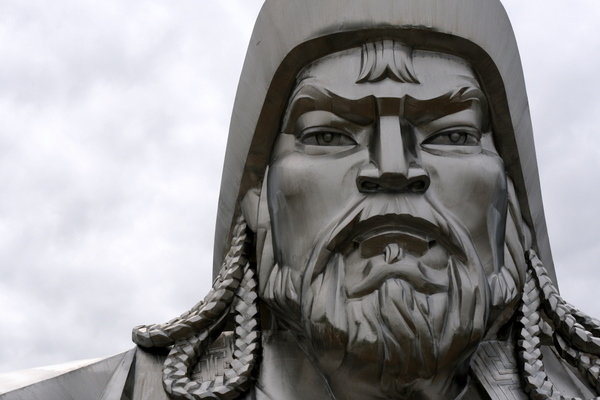
Oliver Corff: Mongol Studies will Notably Contribute to Mongolia's Soft Power Policy www.montsame.mn
Dr. Oliver Corff, a German Mongolist delivered a presentation on "Reading Constitutions as Sources of Intellectual History: 100 Years of Constitutions in Mongolia" at the Mongolia Society, Economy, Politics, and Legal Studies section of the 12th International Congress of Mongolists. A reporter of MONTSAME Mongolian National News Agency talked with him about his studies and Mongol Studies.
- There are probably very few foreign Mongolists, who have studied the Constitution of Mongolia. Why did you choose this topic?
-I chose this topic because of my own history. In February 1992, when I was studying in Mongolia, the new Constitution of Mongolia was approved. That was the time when the country changed its name from the People's Republic of Mongolia to Mongolia. I talked to many people about the new Constitution, and after reading the preamble, I thought that it was the first law that clearly stated the independence of Mongolia and the human rights and freedoms of its citizens. I decided to translate your new Constitution from Mongolian to German and started work in 1992-1993, but I could not find a publisher to print it.
When I read 2-3 books of the old Constitution of Mongolia, which I had bought in a secondhand book shop after returning to Mongolia I found the old Constitution completely different from the new one. The study of the history of your Constitution begins here. The first Constitution of Mongolia was written in 1924, and the second Constitution was approved in 1940. However, in the 1940s, many amendments were made to it. By 1957, the articles of the second Constitution increased to 108. Numerous words related to socialism were included in the third Constitution in the 1960s. It might be related to the friendly relations with the USSR at that time. I have a goal to publish a work that comprises all the Constitutions of Mongolia from 1924 to 1992 with explanations in both Mongolian and German languages. This is my plan for the past 15 years. The new Constitution adopted by the Mongolians in 1992 is already 30 years old. Therefore, you can now discuss and decide whether it is useful/ beneficial for the people and whether it is suitable for Mongolians. In general, there is a huge difference between the Constitution of the socialist era and the current Constitution. The Constitutions of 1924-1960 were written on the Soviet model. In other words, it was not written or edited by Mongolians.
- I intended to ask you a question related to that. When writing the new Constitution of 1992, it is said that a lot was taken from the Constitution of Germany. How reasonable is that?
-Yes, there are some ideas taken from the Constitution of Germany. But the new Constitution is a real Mongolian law, written by Mongolians themselves. Those little things from Germany, I suppose, have contributed to and benefited your country and citizens. Another difference is that in 1991, when the new Constitution was being written, an academic group was established. That group included international legal experts, including German experts, while during the Soviet period, it was directly imposed that "your Constitution should be like this".
- You must have read and made a comparison between the Constitution of Germany and the new Constitution of Mongolia, adopted in 1992.
-Of course. I would like to say that these two laws are quite different, for example, regarding provisions related to the parliamentary system and the powers of the President and Prime Minister. The most important thing is that human rights and freedom are reflected in both Constitutions. Germany and Mongolia are countries with different histories. In addition, the new Constitution of Mongolia in 1992 clearly stated the relationship between citizens and the state. In the socialist era, the law always stated that the people are citizens. Not a citizen, but citizens, in order words people or communities. Let's mention an example of issues related to the rights and freedom of citizens. For example, the Constitutions before 1992 stated that the citizens should not work more than 8 hours. Such things should be reflected in the employment contract signed with the organization you work for. In general, there is no need to include such detailed provisions in the Constitution.
- Now, I would like to ask you a few questions as a Mongolist. You are the first scholar from Germany who worked at the Mongolian Academy of Sciences (MAS) since 1990, right?
-Yes. The first time I set foot in Mongolia was in 1981. But I lived and worked in Mongolia since 1991. At that time, I was working on a project to develop a computer program of traditional Mongol Script at the Institute of Linguistics of MAS. In addition, a plan for a Mongolian language dictionary was developed in cooperation with the research staff of the Institute of Linguistics. In the mid-1990s, I gave lectures on computer programming of Mongol Script to Cyrillic Script at MAS. I began publishing the never-before-published "Dictionary of the Qing Dynasty" or the "Dictionary of Manchu words written by the Emperor in five languages" (abbreviated as "Dictionary of Five Languages") written in 1794. It is a dictionary of Manchu, Tibetan, Chinese, Mongolian, and Tsagaadai languages with 18671 words.
- You have been working in Mongol studies since 1991. How is Mongol studies developing in the world?
-It is developing, but there are few Mongolists in any country, including Germany, France, and the US. It is related to geopolitical policy. The funding often depends on geopolitics. I studied modern Mongolia in East Germany when our country was divided into two. Walter Heissig was a prominent Mongolist from West Germany. There are some students of him, who study Mongolian history. Walther Heissig established the Permanent International Altaistic Conference (PIAC) and served as its Secretary General. I have been appointed PIAC Secretary General this year. Incidentally, PIAC was first established in 1957 and its regular meeting was recently held in Astana, Kazakhstan.
-You must have participated in most of the previous International Congresses of Mongolists. How is this conference different from previous meetings?
-My first participation in the International Congress of Mongolists was the one held in 1992. Since then, I have participated in several congresses. In my opinion, there is no significant difference. Of course, there are changes. The number of participating foreign scholars is increasing, and its scope is expanding internationally. In my opinion, this congress is an important event organized by Mongolia on the international stage. Mongol studies and academic works will notably contribute to Mongolia's soft power policy. Therefore, I think it would be very beneficial for Mongolia to continue to organize this congress in 5-6 years.
-Are young Mongolists emerging abroad?
-Yes, they are. A few years ago, there were few young Mongolists in Germany, but recently the number has been increasing. There has been a significant increase in foreign scholars who is good in Mongolian and are doing academic research. I find their research works very good, listening to the presentations about their works.
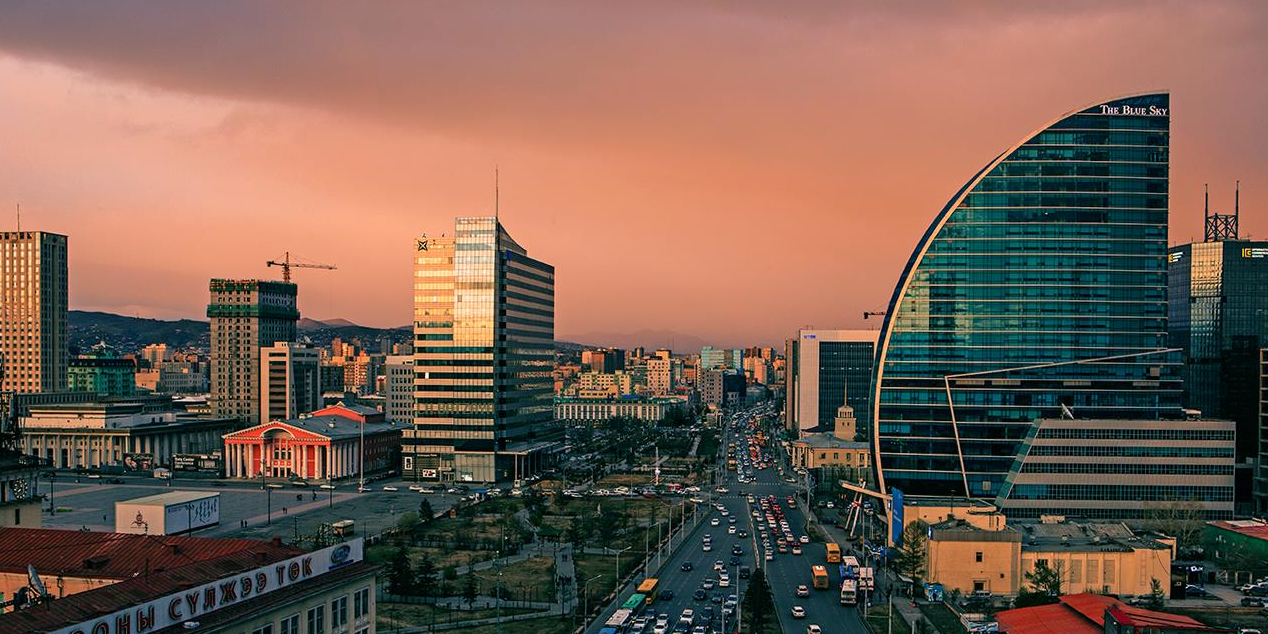
Inflation in Mongolia reached 9.2 percent www.news.mn
The growth in prices for consumer goods and services increased by 9.2 percent in July 2023 compared to the previous year.
Inflation increased by 6.8 percent compared to the end of last year and decreased by 0.3 percent compared to the previous month. Annual inflation is 9.4 percent in Ulaanbaatar. The lowest inflation is in Govi-Altai (6.6 percent), and the highest is in Selenge province (10.4 percent).
The national inflation rate reached 9.2 percent in July 2023, which is decreased by 7.2 percent from the previous year.
Prices for imported goods increased by 35.2 percent, which contributed to inflation by 3.2 percent.
It is noted that the inflation rate was directly affected by the increase in prices for food products, soft drinks and mineral water by 14.4 percent, for housing services, water, electricity, gas and other fuels by 5.5 percent, for medicines and medical services by 7.6 percent.
The Central Bank predicts that Mongolia’s GDP will grow by 5 percent by the end of 2023.

"Aqua Garden" residential building and S outlets store will be force demolished www.gogo.mn
The Department of Urban Development and Construction gave an information on canceling the architectural planning of 1600 buildings Land Department of Ulaanbaatar city gave an information on location of households at risk of flooding and the places prepared for their relocation, and the results of a survey of 86 locations at risk of flooding, and information on construction issues such as "S Outlets" and "Aqua Garden".
- There are a total of 1,887 units affected by the special protection zone. "Aqua Garden" residential building, S outlets store, and Shunkhlai gas station which were built in the river basin will be demolished. It is possible according to the law. An ordinance was also issued on these issues.
The expenses related to the forced demolition of the buildings will be paid from the capital budget. According to the water act, the construction of buildings and structures within 50 meters of the river bank is prohibited. According to the law of general administrative, administrative acts are invalidated if it has a negative impact on rights and lawful interests of others, or public interest. It is also determined that the lives, property, and health of citizens will be damaged, which is the main basis for the order.
A working group will be created to decide compensation for the damages of the people who made reservations in the "Aqua Garden" residential building and S outlets which are under forced demolition.
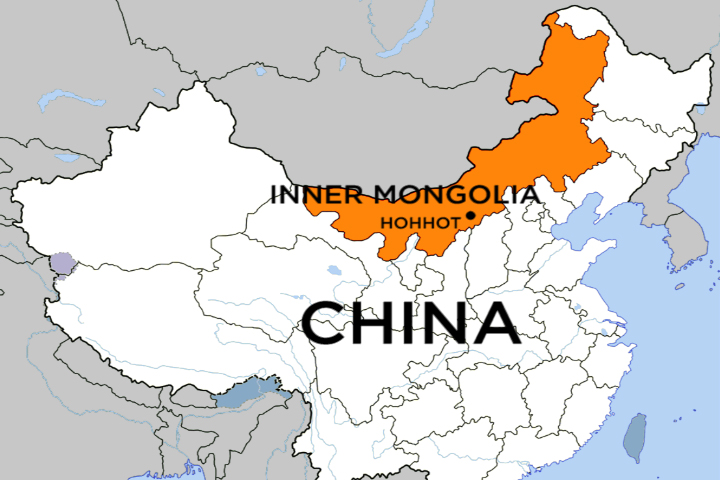
Inner Mongolia's robust contribution to China's energy landscape in Jan-Jul www.sxcoal.com
Inner Mongolia has positioned itself as a major energy provider for China, underlining its significance in the grand scheme of China's economic and energy landscape. According to data from the local statistics bureau, production of all major energy products kept robust increases over the first seven months of 2023.
Coal
Inner Mongolia has solidified its position as the second largest coal bases in China. The region produced 704 million tonnes during January-July of this year, representing a 26.4% share of China's total. The production rose 1.8% from the same month last year, bolstering the nation's overall coal production by 0.5 percentage points.
Power
The region generated 411.72 TWh of electricity during the January-July period, accounting for 8.2% of China's total, the largest share among all producing regions. Notably, Inner Mongolia's growth rate of 11.9% surpassed the national by 8.1 percentage points. This leadership extends to thermal and wind power sectors, where the region captured 9.2% and 15.1% of the national share, respectively.
LNG
Inner Mongolia's dominance extends to the realm of liquefied natural gas (LNG) production. The region's 3.09 million tonnes of LNG in January-July cements Inner Mongolia's position as the national leader by constituting a 28.2% share. A growth rate of 12.0% further exemplifies Inner Mongolia's prowess in this sector, surpassing the national average growth rate by 2.8 percentage points.
Coke
With an output of 29.1 million tonnes during the January-July period, Inner Mongolia ranked second among all producers of the steelmaking materials in the nation, accounting for 10.2% of China's total. Demonstrating a 8.4% rise compared to the previous year, Inner Mongolia's performance outpaced the national average growth rate by 6.5 percentage points. This contribution played a pivotal role in driving the nation's overall coke production increase by 0.8 percentage points.

Number of Passengers Entering Mongolia Increases 3.7 Times www.montsame.mn
In the first half of this year, 2,117.7 thousand (double counting) passengers crossed the border of Mongolia, which is 1,542.8 thousand (3.7 times) more than in the same period of the previous year.
During this period, 1059.1 thousand passengers entered the country, 811.7 thousand (76.6 percent) were citizens of Mongolia, and 247.4 (23.4 percent) thousand were citizens of foreign countries. The number of foreigners (247.4 thousand) who entered the border is 168.3 thousand or 3.1 times more than in the same period of the previous year. According to the National Statistics Office, 88.1 percent of them came for up to 30 days, 2.8 percent for 30-90 days, and 9.1 percent for 90 or more days.
Among foreigners who entered the country 231.6 thousand (93.6 percent) were adults, 15.8 thousand (6.4 percent) were children, 144.2 thousand (58.3 percent) were men, and 103.2 (41.7 percent) were women. Of those passengers, 49.9 percent came from Europe, 44.9 percent from East Asia and the Pacific, 2.9 percent from the United States, 1.2 percent from the Middle East, and 1 percent from South Asia and Africa. Passengers from Russia constitute 43.9 percent of foreigners, 19.7 percent from China, 15 percent from South Korea, 3.1 percent from Kazakhstan, 2.5 percent from Japan, 2.4 percent from the United States, and 13.4 percent from other countries.
The number of tourists who crossed the border in the first half of this year reached 226.8 thousand, which is 153.2 thousand or 3.1 times more than in the same period of the previous year. In the first half of 2023, compared to the same period of the previous year, the number of tourists from Russia increased by 68.1 thousand or 2.9 times, from China by 33.7 thousand or 10 times, from South Korea by 27.2 thousand or 4.1 times, and from Japan by 4.6 thousand or 4.4 times.
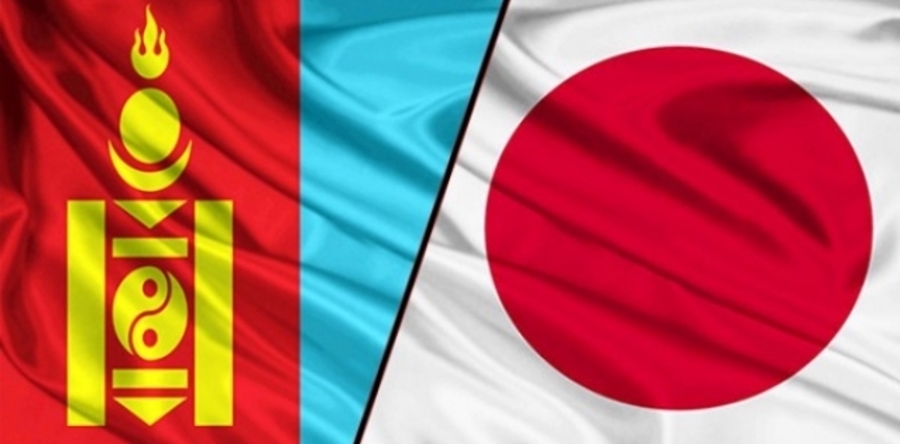
Mongolia's Resources and Opportunities Will be Combined with Japan's High Technology www.montsame.mn
Over 100 representatives of the businesses of Japan and more than 400 representatives of the Mongolian business sector participated in the "Mongolia-Japan Business Forum-2023" co-organized by the Japan International Cooperation Organization (JICA), Mongolian National Chamber of Commerce and Industry (MNCCI), and the Mongolia-Japan Center for Human Resource Development.
At the Forum, the participants made presentations and discussed topics such as support for the development of exports between the two countries, information, communication, digital technology, climate change, and innovation. The Chairman of the MNCCI T. Duuren presented the role of the chamber in supporting Mongolian-Japanese business cooperation. He informed that by the initiative of the MNCCI they are planning to set up a Mongolia-China-Japan Cooperation Council. Establishment of this Council and combined use of Mongolia's resources and opportunities, and Japan's experience, know-how, and high technology will enable to access the Chinese market with new products, and further expand export of domestic products to the Southeast Asian market.
Since commencement of the implementation of the Economic Partnership Agreement, the trade between the two countries has increased every year. If in 2018 it sharply increased compared to 2016: the export increased by 88.6 percent, the import increased by 69.7 percent, and the total trade turnover increased by USD 242.87 million and reached USD 580 million, then in 2022, the total turnover of foreign trade has reached USD 689.4 million.
During the Forum, the parties signed the record documents of the Technical Cooperation Agreement "Project to Support the Development of New Zuunmod City and Free Economic Zone".
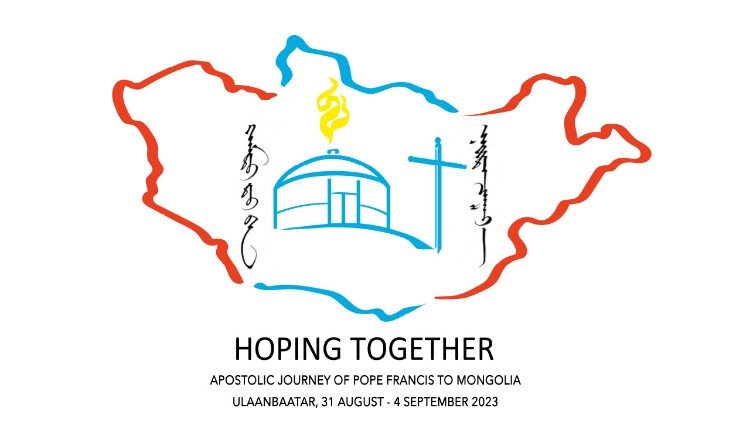
Mongolia: a strategic destination for Pope Francis in Asia www.aleteia.org
Mongolia's strategic location between Russia and China makes it an ideal location for the Pope to show the Church's compatibility with Asian cultures.
From August 31 to September 4, 2023, Pope Francis will make the first ever papal visit to Mongolia. The Pontiff intends first and foremost to address the Mongolian people and the small local Catholic community. However, his trip to the land of the Khans, a former socialist republic landlocked between Russia and China, also appears to be a strategic move for the Holy See.
The legacy of John Paul II and Communism
Since the fall of the Berlin Wall and the independence of the socialist blocs, one of the main thrusts of Vatican diplomacy has been to try and make its voice heard in this vast expanse stretching from the Balkans to Southeast Asia. The aim: to support the existing communities who have suffered persecution, and to encourage mission and evangelization.
The legacy of John Paul II, seen by many as one of the architects of the fall of the Communist world, has made many former socialist republics wary of the Catholic presence on their territory. This is notably the case in Russia — where no pope has ever been able to visit — and in China — where the Church is under the oversight of a Patriotic Association loyal to the Chinese Communist Party. It is also the case, to varying degrees, in Kazakhstan, Vietnam, Laos, and Mongolia.
However, the latter has recently shown itself open to establishing new relations with the Holy See, as witnessed by the Pope’s upcoming visit. A similar case is Kazakhstan, which Pope Francis visited last September. In these two countries, both bordering Russia and China, the governments have shown a willingness to relax their control of the local Churches — without, however, granting total freedom to missionaries and local priests.
Diplomacy on the peripheries
The Holy See’s diplomacy in this type of country appears to be “peripheral,” to use a term dear to Pope Francis. By going to the borders of China and Russia, the Pope is trying to assure them that he is capable of integrating Asian cultural challenges, and that he is not — as is feared in Beijing and Moscow — the “chaplain of the West.” Good relations with Mongolia, Kazakhstan, and Vietnam, which are closely linked to their large neighbors, could serve as a model for future rapprochement with the latter.
With Russia, this has been particularly evident since 2022 and the outbreak of war in Ukraine. On the return flight from his trip to Kazakhstan, Pope Francis declared that closing the door to dialogue with Russia was tantamount to closing “the only reasonable door to peace.” His diplomacy continues to defend this line of action, as witnessed by Cardinal Matteo Maria Zuppi’s recent mission to Moscow.
Although Russia is less present in Mongolia than China, it is enjoying renewed affection among the population, according to a missionary who spent ten years there. Ulaanbaator could therefore be a valuable intermediary for discussions with Moscow.
A complicated relationship with China
With China, the Vatican’s difficulties seem even greater. The historic agreement on the appointment of bishops, reached between the two parties in 2018, has so far not really borne fruit. China has continued to act without consulting the Holy See. During his previous trip to Kazakhstan, the Pontiff tried in vain to meet Xi Jinping, who happened to be passing through Astana at the same time as him. In Mongolia, the Pope will continue his journey along the Silk Road, and attempt to take another step towards Beijing.
Mongolia has long been regarded by the Holy See as the Church’s gateway to China. In a speech given on the occasion of the Jubilee Year 2000, Cardinal Jozef Tomko, in charge of the missions, welcomed the first baptisms celebrated in Mongolia. Immediately afterwards he declared, “…and at the same time, we are waiting for the hour of the great China.” Today, this door is ajar for priests, despite the stringent controls imposed by Chinese customs.
The “rosary of pearls”
In Mongolia, the Holy See seems to be laying a new stone in a sort of encirclement of China. This is a “rosary of pearls” strategy, in reference to China’s “string of pearls” strategy in Southeast Asia and the Indian Ocean.
This “rosary of pearls” is made up primarily of the region’s traditional Catholic hubs of Taiwan and Hong Kong, where Cardinal-designate Stephen Sau-yan Chow is a key intermediary with Beijing. However, the former British enclave and the small republic of Formosa have also been weakened by Beijing’s declared intention to place them under its total control in the coming years. This will mean a reduction of the margin of freedom that made them a strategic platform for the Church — notably for sending missionaries to China.
Mongolia’s role
Faced with the weakening of Taiwan and Hong Kong, Mongolia, like Burma and Kazakhstan, represents a new form of discreet Catholic presence on China’s doorstep. And the spectacular warming of relations between the Vatican and Vietnam this summer, with the opening of diplomatic relations, is a further step in this direction.
In recent years, Pope Francis has also surrounded himself with advisors who can play a mediating role with China. First and foremost there’s the pro-prefect of the dicastery for Evangelization, Filipino Cardinal Luis Antonio Tagle. He’s the grandson of a Chinese migrant, and has participated in the attempts at rapprochement with Beijing led by Vatican diplomacy under Cardinal Pietro Parolin. Cardinal William Goh, Archbishop of Singapore and a member of the city-state’s large Chinese diaspora, is another example.
In Mongolia, despite the very small Catholic population (estimated at less than 1,500), the Pontiff chose to award the cardinal’s biretta to the very young missionary Giorgio Marengo. Territorially speaking, from an ecclesiastical perspective Mongolia is linked to the vast area of Central Asia, making the Cardinal-Prefect of Ulaanbaator the vanguard of the Church on this Silk Road that China is trying to revive.

New Peace Corps Volunteers Start Work in Mongolia www.mn.usembassy.gov
The newest cohort of Peace Corps Volunteers in Mongolia were sworn in August 17. These 14 Americans will travel to sites across Mongolia to live and work alongside their Mongolian partners as English Education and Community Development volunteers for the next two years. These volunteers are the second group to arrive in Mongolia since Peace Corps operations were temporarily suspended due to COVID-19 in 2020. This is the 32nd group of volunteers to serve in Mongolia since the program was founded in 1991. Since then, about 1,450 volunteers have worked in Mongolia in community and youth development, health education, economic development, and teaching English as a foreign language.
The swearing-in ceremony was attended by distinguished guests including Richard Buangan, U.S. Ambassador to Mongolia; Anand Amgalan, Director of the Americas, Middle East, and Africa Department of the Ministry of Foreign Affairs; and Rebecca Gong Sharp, Peace Corps Regional Director of Europe, Mediterranean and Asia. As Ambassador Buangan noted in his remarks at the swearing-in ceremony, “The United Sates deeply values its relationship with Mongolia and has high expectations of Peace Corps Volunteers to represent the best of the United States.”
About the Peace Corps: The Peace Corps sends the best and brightest Americans abroad on behalf of the United States to tackle the most pressing needs of people around the world. Volunteers work at the grassroots level to develop sustainable solutions that address challenges in education, health, economic development, agriculture, environment, and youth development. Through their service, volunteers gain a unique cultural understanding and a life-long commitment to service that positions them to succeed in today’s global economy. Since President John F. Kennedy established the Peace Corps in 1961, nearly 240,000 Americans of all ages have served in 143 countries worldwide. For more information on Mongolia activities, visit www.peacecorps.gov and follow us on Facebook and Twitter.
- «
- 1
- 2
- 3
- 4
- 5
- 6
- 7
- 8
- 9
- 10
- 11
- 12
- 13
- 14
- 15
- 16
- 17
- 18
- 19
- 20
- 21
- 22
- 23
- 24
- 25
- 26
- 27
- 28
- 29
- 30
- 31
- 32
- 33
- 34
- 35
- 36
- 37
- 38
- 39
- 40
- 41
- 42
- 43
- 44
- 45
- 46
- 47
- 48
- 49
- 50
- 51
- 52
- 53
- 54
- 55
- 56
- 57
- 58
- 59
- 60
- 61
- 62
- 63
- 64
- 65
- 66
- 67
- 68
- 69
- 70
- 71
- 72
- 73
- 74
- 75
- 76
- 77
- 78
- 79
- 80
- 81
- 82
- 83
- 84
- 85
- 86
- 87
- 88
- 89
- 90
- 91
- 92
- 93
- 94
- 95
- 96
- 97
- 98
- 99
- 100
- 101
- 102
- 103
- 104
- 105
- 106
- 107
- 108
- 109
- 110
- 111
- 112
- 113
- 114
- 115
- 116
- 117
- 118
- 119
- 120
- 121
- 122
- 123
- 124
- 125
- 126
- 127
- 128
- 129
- 130
- 131
- 132
- 133
- 134
- 135
- 136
- 137
- 138
- 139
- 140
- 141
- 142
- 143
- 144
- 145
- 146
- 147
- 148
- 149
- 150
- 151
- 152
- 153
- 154
- 155
- 156
- 157
- 158
- 159
- 160
- 161
- 162
- 163
- 164
- 165
- 166
- 167
- 168
- 169
- 170
- 171
- 172
- 173
- 174
- 175
- 176
- 177
- 178
- 179
- 180
- 181
- 182
- 183
- 184
- 185
- 186
- 187
- 188
- 189
- 190
- 191
- 192
- 193
- 194
- 195
- 196
- 197
- 198
- 199
- 200
- 201
- 202
- 203
- 204
- 205
- 206
- 207
- 208
- 209
- 210
- 211
- 212
- 213
- 214
- 215
- 216
- 217
- 218
- 219
- 220
- 221
- 222
- 223
- 224
- 225
- 226
- 227
- 228
- 229
- 230
- 231
- 232
- 233
- 234
- 235
- 236
- 237
- 238
- 239
- 240
- 241
- 242
- 243
- 244
- 245
- 246
- 247
- 248
- 249
- 250
- 251
- 252
- 253
- 254
- 255
- 256
- 257
- 258
- 259
- 260
- 261
- 262
- 263
- 264
- 265
- 266
- 267
- 268
- 269
- 270
- 271
- 272
- 273
- 274
- 275
- 276
- 277
- 278
- 279
- 280
- 281
- 282
- 283
- 284
- 285
- 286
- 287
- 288
- 289
- 290
- 291
- 292
- 293
- 294
- 295
- 296
- 297
- 298
- 299
- 300
- 301
- 302
- 303
- 304
- 305
- 306
- 307
- 308
- 309
- 310
- 311
- 312
- 313
- 314
- 315
- 316
- 317
- 318
- 319
- 320
- 321
- 322
- 323
- 324
- 325
- 326
- 327
- 328
- 329
- 330
- 331
- 332
- 333
- 334
- 335
- 336
- 337
- 338
- 339
- 340
- 341
- 342
- 343
- 344
- 345
- 346
- 347
- 348
- 349
- 350
- 351
- 352
- 353
- 354
- 355
- 356
- 357
- 358
- 359
- 360
- 361
- 362
- 363
- 364
- 365
- 366
- 367
- 368
- 369
- 370
- 371
- 372
- 373
- 374
- 375
- 376
- 377
- 378
- 379
- 380
- 381
- 382
- 383
- 384
- 385
- 386
- 387
- 388
- 389
- 390
- 391
- 392
- 393
- 394
- 395
- 396
- 397
- 398
- 399
- 400
- 401
- 402
- 403
- 404
- 405
- 406
- 407
- 408
- 409
- 410
- 411
- 412
- 413
- 414
- 415
- 416
- 417
- 418
- 419
- 420
- 421
- 422
- 423
- 424
- 425
- 426
- 427
- 428
- 429
- 430
- 431
- 432
- 433
- 434
- 435
- 436
- 437
- 438
- 439
- 440
- 441
- 442
- 443
- 444
- 445
- 446
- 447
- 448
- 449
- 450
- 451
- 452
- 453
- 454
- 455
- 456
- 457
- 458
- 459
- 460
- 461
- 462
- 463
- 464
- 465
- 466
- 467
- 468
- 469
- 470
- 471
- 472
- 473
- 474
- 475
- 476
- 477
- 478
- 479
- 480
- 481
- 482
- 483
- 484
- 485
- 486
- 487
- 488
- 489
- 490
- 491
- 492
- 493
- 494
- 495
- 496
- 497
- 498
- 499
- 500
- 501
- 502
- 503
- 504
- 505
- 506
- 507
- 508
- 509
- 510
- 511
- 512
- 513
- 514
- 515
- 516
- 517
- 518
- 519
- 520
- 521
- 522
- 523
- 524
- 525
- 526
- 527
- 528
- 529
- 530
- 531
- 532
- 533
- 534
- 535
- 536
- 537
- 538
- 539
- 540
- 541
- 542
- 543
- 544
- 545
- 546
- 547
- 548
- 549
- 550
- 551
- 552
- 553
- 554
- 555
- 556
- 557
- 558
- 559
- 560
- 561
- 562
- 563
- 564
- 565
- 566
- 567
- 568
- 569
- 570
- 571
- 572
- 573
- 574
- 575
- 576
- 577
- 578
- 579
- 580
- 581
- 582
- 583
- 584
- 585
- 586
- 587
- 588
- 589
- 590
- 591
- 592
- 593
- 594
- 595
- 596
- 597
- 598
- 599
- 600
- 601
- 602
- 603
- 604
- 605
- 606
- 607
- 608
- 609
- 610
- 611
- 612
- 613
- 614
- 615
- 616
- 617
- 618
- 619
- 620
- 621
- 622
- 623
- 624
- 625
- 626
- 627
- 628
- 629
- 630
- 631
- 632
- 633
- 634
- 635
- 636
- 637
- 638
- 639
- 640
- 641
- 642
- 643
- 644
- 645
- 646
- 647
- 648
- 649
- 650
- 651
- 652
- 653
- 654
- 655
- 656
- 657
- 658
- 659
- 660
- 661
- 662
- 663
- 664
- 665
- 666
- 667
- 668
- 669
- 670
- 671
- 672
- 673
- 674
- 675
- 676
- 677
- 678
- 679
- 680
- 681
- 682
- 683
- 684
- 685
- 686
- 687
- 688
- 689
- 690
- 691
- 692
- 693
- 694
- 695
- 696
- 697
- 698
- 699
- 700
- 701
- 702
- 703
- 704
- 705
- 706
- 707
- 708
- 709
- 710
- 711
- 712
- 713
- 714
- 715
- 716
- 717
- 718
- 719
- 720
- 721
- 722
- 723
- 724
- 725
- 726
- 727
- 728
- 729
- 730
- 731
- 732
- 733
- 734
- 735
- 736
- 737
- 738
- 739
- 740
- 741
- 742
- 743
- 744
- 745
- 746
- 747
- 748
- 749
- 750
- 751
- 752
- 753
- 754
- 755
- 756
- 757
- 758
- 759
- 760
- 761
- 762
- 763
- 764
- 765
- 766
- 767
- 768
- 769
- 770
- 771
- 772
- 773
- 774
- 775
- 776
- 777
- 778
- 779
- 780
- 781
- 782
- 783
- 784
- 785
- 786
- 787
- 788
- 789
- 790
- 791
- 792
- 793
- 794
- 795
- 796
- 797
- 798
- 799
- 800
- 801
- 802
- 803
- 804
- 805
- 806
- 807
- 808
- 809
- 810
- 811
- 812
- 813
- 814
- 815
- 816
- 817
- 818
- 819
- 820
- 821
- 822
- 823
- 824
- 825
- 826
- 827
- 828
- 829
- 830
- 831
- 832
- 833
- 834
- 835
- 836
- 837
- 838
- 839
- 840
- 841
- 842
- 843
- 844
- 845
- 846
- 847
- 848
- 849
- 850
- 851
- 852
- 853
- 854
- 855
- 856
- 857
- 858
- 859
- 860
- 861
- 862
- 863
- 864
- 865
- 866
- 867
- 868
- 869
- 870
- 871
- 872
- 873
- 874
- 875
- 876
- 877
- 878
- 879
- 880
- 881
- 882
- 883
- 884
- 885
- 886
- 887
- 888
- 889
- 890
- 891
- 892
- 893
- 894
- 895
- 896
- 897
- 898
- 899
- 900
- 901
- 902
- 903
- 904
- 905
- 906
- 907
- 908
- 909
- 910
- 911
- 912
- 913
- 914
- 915
- 916
- 917
- 918
- 919
- 920
- 921
- 922
- 923
- 924
- 925
- 926
- 927
- 928
- 929
- 930
- 931
- 932
- 933
- 934
- 935
- 936
- 937
- 938
- 939
- 940
- 941
- 942
- 943
- 944
- 945
- 946
- 947
- 948
- 949
- 950
- 951
- 952
- 953
- 954
- 955
- 956
- 957
- 958
- 959
- 960
- 961
- 962
- 963
- 964
- 965
- 966
- 967
- 968
- 969
- 970
- 971
- 972
- 973
- 974
- 975
- 976
- 977
- 978
- 979
- 980
- 981
- 982
- 983
- 984
- 985
- 986
- 987
- 988
- 989
- 990
- 991
- 992
- 993
- 994
- 995
- 996
- 997
- 998
- 999
- 1000
- 1001
- 1002
- 1003
- 1004
- 1005
- 1006
- 1007
- 1008
- 1009
- 1010
- 1011
- 1012
- 1013
- 1014
- 1015
- 1016
- 1017
- 1018
- 1019
- 1020
- 1021
- 1022
- 1023
- 1024
- 1025
- 1026
- 1027
- 1028
- 1029
- 1030
- 1031
- 1032
- 1033
- 1034
- 1035
- 1036
- 1037
- 1038
- 1039
- 1040
- 1041
- 1042
- 1043
- 1044
- 1045
- 1046
- 1047
- 1048
- 1049
- 1050
- 1051
- 1052
- 1053
- 1054
- 1055
- 1056
- 1057
- 1058
- 1059
- 1060
- 1061
- 1062
- 1063
- 1064
- 1065
- 1066
- 1067
- 1068
- 1069
- 1070
- 1071
- 1072
- 1073
- 1074
- 1075
- 1076
- 1077
- 1078
- 1079
- 1080
- 1081
- 1082
- 1083
- 1084
- 1085
- 1086
- 1087
- 1088
- 1089
- 1090
- 1091
- 1092
- 1093
- 1094
- 1095
- 1096
- 1097
- 1098
- 1099
- 1100
- 1101
- 1102
- 1103
- 1104
- 1105
- 1106
- 1107
- 1108
- 1109
- 1110
- 1111
- 1112
- 1113
- 1114
- 1115
- 1116
- 1117
- 1118
- 1119
- 1120
- 1121
- 1122
- 1123
- 1124
- 1125
- 1126
- 1127
- 1128
- 1129
- 1130
- 1131
- 1132
- 1133
- 1134
- 1135
- 1136
- 1137
- 1138
- 1139
- 1140
- 1141
- 1142
- 1143
- 1144
- 1145
- 1146
- 1147
- 1148
- 1149
- 1150
- 1151
- 1152
- 1153
- 1154
- 1155
- 1156
- 1157
- 1158
- 1159
- 1160
- 1161
- 1162
- 1163
- 1164
- 1165
- 1166
- 1167
- 1168
- 1169
- 1170
- 1171
- 1172
- 1173
- 1174
- 1175
- 1176
- 1177
- 1178
- 1179
- 1180
- 1181
- 1182
- 1183
- 1184
- 1185
- 1186
- 1187
- 1188
- 1189
- 1190
- 1191
- 1192
- 1193
- 1194
- 1195
- 1196
- 1197
- 1198
- 1199
- 1200
- 1201
- 1202
- 1203
- 1204
- 1205
- 1206
- 1207
- 1208
- 1209
- 1210
- 1211
- 1212
- 1213
- 1214
- 1215
- 1216
- 1217
- 1218
- 1219
- 1220
- 1221
- 1222
- 1223
- 1224
- 1225
- 1226
- 1227
- 1228
- 1229
- 1230
- 1231
- 1232
- 1233
- 1234
- 1235
- 1236
- 1237
- 1238
- 1239
- 1240
- 1241
- 1242
- 1243
- 1244
- 1245
- 1246
- 1247
- 1248
- 1249
- 1250
- 1251
- 1252
- 1253
- 1254
- 1255
- 1256
- 1257
- 1258
- 1259
- 1260
- 1261
- 1262
- 1263
- 1264
- 1265
- 1266
- 1267
- 1268
- 1269
- 1270
- 1271
- 1272
- 1273
- 1274
- 1275
- 1276
- 1277
- 1278
- 1279
- 1280
- 1281
- 1282
- 1283
- 1284
- 1285
- 1286
- 1287
- 1288
- 1289
- 1290
- 1291
- 1292
- 1293
- 1294
- 1295
- 1296
- 1297
- 1298
- 1299
- 1300
- 1301
- 1302
- 1303
- 1304
- 1305
- 1306
- 1307
- 1308
- 1309
- 1310
- 1311
- 1312
- 1313
- 1314
- 1315
- 1316
- 1317
- 1318
- 1319
- 1320
- 1321
- 1322
- 1323
- 1324
- 1325
- 1326
- 1327
- 1328
- 1329
- 1330
- 1331
- 1332
- 1333
- 1334
- 1335
- 1336
- 1337
- 1338
- 1339
- 1340
- 1341
- 1342
- 1343
- 1344
- 1345
- 1346
- 1347
- 1348
- 1349
- 1350
- 1351
- 1352
- 1353
- 1354
- 1355
- 1356
- 1357
- 1358
- 1359
- 1360
- 1361
- 1362
- 1363
- 1364
- 1365
- 1366
- 1367
- 1368
- 1369
- 1370
- 1371
- 1372
- 1373
- 1374
- 1375
- 1376
- 1377
- 1378
- 1379
- 1380
- 1381
- 1382
- 1383
- 1384
- 1385
- 1386
- 1387
- 1388
- 1389
- 1390
- 1391
- 1392
- 1393
- 1394
- 1395
- 1396
- 1397
- 1398
- 1399
- 1400
- 1401
- 1402
- 1403
- 1404
- 1405
- 1406
- 1407
- 1408
- 1409
- 1410
- 1411
- 1412
- 1413
- 1414
- 1415
- 1416
- 1417
- 1418
- 1419
- 1420
- 1421
- 1422
- 1423
- 1424
- 1425
- 1426
- 1427
- 1428
- 1429
- 1430
- 1431
- 1432
- 1433
- 1434
- 1435
- 1436
- 1437
- 1438
- 1439
- 1440
- 1441
- 1442
- 1443
- 1444
- 1445
- 1446
- 1447
- 1448
- 1449
- 1450
- 1451
- 1452
- 1453
- 1454
- 1455
- 1456
- 1457
- 1458
- 1459
- 1460
- 1461
- 1462
- 1463
- 1464
- 1465
- 1466
- 1467
- 1468
- 1469
- 1470
- 1471
- 1472
- 1473
- 1474
- 1475
- 1476
- 1477
- 1478
- 1479
- 1480
- 1481
- 1482
- 1483
- 1484
- 1485
- 1486
- 1487
- 1488
- 1489
- 1490
- 1491
- 1492
- 1493
- 1494
- 1495
- 1496
- 1497
- 1498
- 1499
- 1500
- 1501
- 1502
- 1503
- 1504
- 1505
- 1506
- 1507
- 1508
- 1509
- 1510
- 1511
- 1512
- 1513
- 1514
- 1515
- 1516
- 1517
- 1518
- 1519
- 1520
- 1521
- 1522
- 1523
- 1524
- 1525
- 1526
- 1527
- 1528
- 1529
- 1530
- 1531
- 1532
- 1533
- 1534
- 1535
- 1536
- 1537
- 1538
- 1539
- 1540
- 1541
- 1542
- 1543
- 1544
- 1545
- 1546
- 1547
- 1548
- 1549
- 1550
- 1551
- 1552
- 1553
- 1554
- 1555
- 1556
- 1557
- 1558
- 1559
- 1560
- 1561
- 1562
- 1563
- 1564
- 1565
- 1566
- 1567
- 1568
- 1569
- 1570
- 1571
- 1572
- 1573
- 1574
- 1575
- 1576
- 1577
- 1578
- 1579
- 1580
- 1581
- 1582
- 1583
- 1584
- 1585
- 1586
- 1587
- 1588
- 1589
- 1590
- 1591
- 1592
- 1593
- 1594
- 1595
- 1596
- 1597
- 1598
- 1599
- 1600
- 1601
- 1602
- 1603
- 1604
- 1605
- 1606
- 1607
- 1608
- 1609
- 1610
- 1611
- 1612
- 1613
- 1614
- 1615
- 1616
- 1617
- 1618
- 1619
- 1620
- 1621
- 1622
- 1623
- 1624
- 1625
- 1626
- 1627
- 1628
- 1629
- 1630
- 1631
- 1632
- 1633
- 1634
- 1635
- 1636
- 1637
- 1638
- 1639
- 1640
- 1641
- 1642
- 1643
- 1644
- 1645
- 1646
- 1647
- 1648
- 1649
- 1650
- 1651
- 1652
- 1653
- 1654
- 1655
- 1656
- 1657
- 1658
- 1659
- 1660
- 1661
- 1662
- 1663
- 1664
- 1665
- 1666
- 1667
- 1668
- 1669
- 1670
- 1671
- 1672
- 1673
- 1674
- 1675
- 1676
- 1677
- 1678
- 1679
- 1680
- 1681
- 1682
- 1683
- 1684
- 1685
- 1686
- 1687
- 1688
- 1689
- 1690
- 1691
- 1692
- 1693
- 1694
- 1695
- 1696
- 1697
- 1698
- 1699
- 1700
- 1701
- 1702
- 1703
- 1704
- 1705
- 1706
- 1707
- 1708
- 1709
- 1710
- 1711
- 1712
- 1713
- 1714
- »






